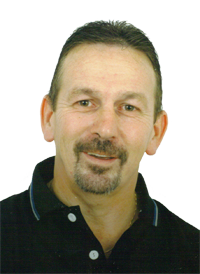

Due to the nature of my work, I am a lecturer in Literature and English language subjects at the University of Nizwa. I am required to support, guide and advise my colleagues in their work. I love it. There can be little more gratifying than helping someone achieve either their full potential or maximise their performance.
Sheri Dew wrote of accessing our highest levels of achievement that, “The more we sense our ultimate potential, the more we will become determined to achieve it.”
She offers the example of someone being hounded by their mum to practise and play the piano, until one day, they recognise the sheer joy of music, and the piano.
The problem with helping others is often that, though they need it, they often don’t see that they need it. Complicating the issue is that if senior management identifies an area of concern that needs a ‘firefighter’, so to speak, and implements their support and guidance arbitrarily, it is rarely appreciated by the recipient. They will experience feelings of inadequacy and diminished self-esteem, and will rarely see the ultimate objective as anything other than a ‘slap in the face’.
Most of us, I think, remain confused with little idea of our ultimate objectives in life, and that is where the ‘worm’ of insecurity or inadequacy flourishes. We are so focused on being perfect, and right, that we forget that it’s not a terribly bad thing to make a mistake, or mistakes. As Billy Joel sang, “We’re only human, we’re supposed to make mistakes.” We weren’t born, or made, infallible.
Even Superman recognised the dark places we can go to. No! Not the kryptonite Superman, but the man himself, Christopher Reeve, who played the role of the other-worldly crime-fighter. A quadriplegic after a horse-riding accident, Reeve demonstrated his genuine strength, saying, “Either we let our feelings of self-doubt and inadequacy prevent us from realising our potential, or embrace the fact that when we turn our attention away from ourselves, our potential is limitless.”
Being who, and what we are, we have this somewhat understandable reaction to ‘help’, as an indication that we are not good enough, when the reality is very much less critical, and is most likely an indication that your shortcoming is not holistic, but specific.
How often do we see, or hear, in children especially, “I can’t do anything right!” when they’ve been told they are not doing one thing right. Yes, as adults, many of us retain that exact same ability to get all sulky and petulant, to take professional issues, personally.
Some people say, and I’ve heard it mostly in the, let’s say, more mature age groups, that you don’t become a fully functioning member of a team until you become bullet-proof, until you feel that you have nothing to lose, and nothing to prove.
In fact, the artist John Cassavettes wrote, “You must risk everything, dare to succeed or fail, have the courage to be good or bad, and be willing to risk all, to express yourself.”
I guess where I’m coming from, is the place of advising management, wherever you are, to step lightly around the tender feelings of your employees, and if someone needs support, then provide it in such a way that it is at the employees request or recognition. Don’t use a sledgehammer to crack a nut.
After all, you hired that person for their knowledge, skills and potential. It will be a feather in your cap if you are a good enough manager to ensure that they fulfil that potential.
Criticism can be like a Khanjar used brutally, that cuts and thrusts deeply, or used more delicately, a subtle blade that shaves closely, and achieves much more.
Ray Petersen
petersen_ray@hotmail.com
Oman Observer is now on the WhatsApp channel. Click here



